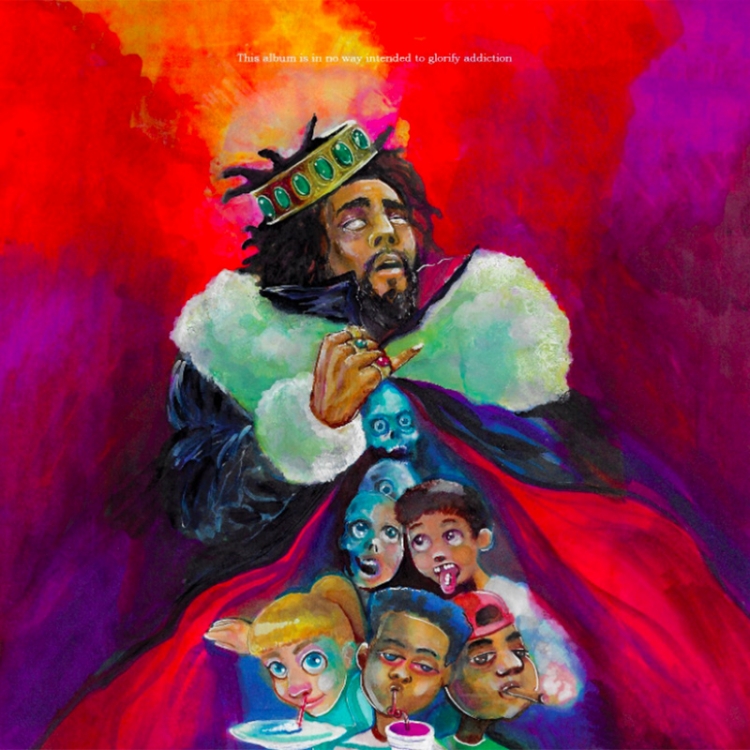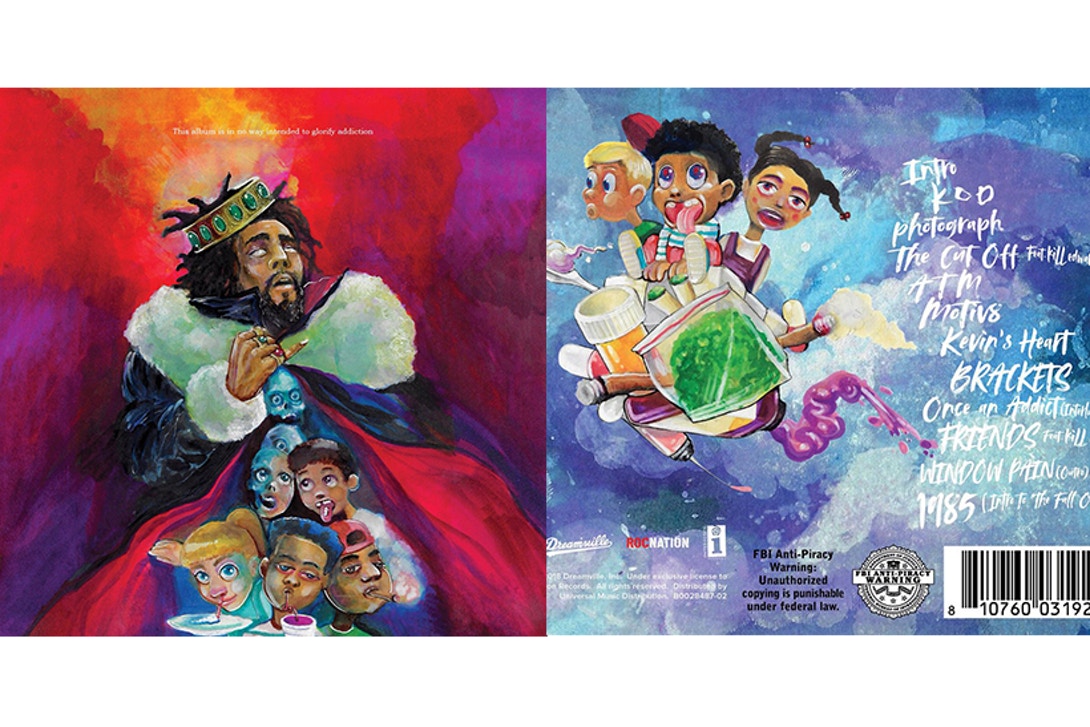Kids on Drugs, King Overdosed, Kill our Demons: A review of KOD

An unexpected album release by J. Cole hit fans and followers with a tough subject late last week: addiction. Ironically, the album was released on 4/20 or April 20, 2018, a stoners favorite 'holiday'. But Cole's latest album, KOD wasn't just aimed at substance abuse, he also pulls into sight addictions of money, power, sex, love, the internet, and new-age rap.
J. Cole's last two albums, Forrest Hill Drive and 4 Your Eyez Only, both went platinum without any features on the track list. With this being his fifth album, you would think he might change it up and open up his expressive power with another artist. And you may even get excited like I did when you see two tracks featuring an artist called kiLL edward. However, this is just a tease by Cole, who allegedly is kiLL edward but with a synthetically slowed down voice. Kendrick has Kung-fu Kenny, J. Cole has kiLL edward. It works. Besides, why feature another artist if you have no problem making platinum records on your own.
Covering such a sensitive topic such as addiction, it's far too easy to come off as "preaching from a high horse" when trying to give advice or offer help to someone. With album artwork portraying him as a king, the subject matter, and his clear and frequent warnings to newer rappers, it may feel like Cole is a being somewhat preachy at times. But soft melodies and simple, jazz style beats accompanied by personal anecdotes with his own accounts of addiction, bring a relaxed feeling and set a humbling tone as he talks about everything wrong with today's rap culture and America's addictive society.
With the largest theme being drug addiction, the Album artwork is a powerful visual, portraying everything J. Cole touches upon with his lyricism.
Cole talks about greed and power within himself, friends who take advantage of him, and even the government. On his track, "BRACKETS," Cole expresses his issues with the U.S tax system and its corruption. He recites:
Yeah, I pay taxes, so much taxes, shit don't make sense/ Where do my dollars go? You see lately, I ain't been convinced/ If I'm giving y'all this hard-earned bread, I wanna know/ Better yet, let me decide, bitch, it's 2018/ Let me pick the things i'm funding from an app on my screen/ Better that than letting wack congressman I've never seen/ Dictate where my money go, straight into the palms of some/ Money-hungry company that make guns that circulate the country/ And then wind up in my hood, making bloody clothes/ Stray bullet hit a young boy with a snotty nose.
With so many issues discussed on this album, J. Cole does a great job dividing his 45-minute-12-track record into equal efforts of his pressing issues with drug addiction, the influence rap has on the culture of America's youth and the abusive relationship people have with money and power.
In his title track "KOD", Cole has an uptempo fire that brings a dynamic sound to the smooth, melodic sound found on the rest of the album. He talks about his savvy days of a drug dealer to his proclaimed no-feature-needed success, reminding everyone to "get off his d***k," a reference to the "G.O.M.D" which was a popular track off his 2014 album Forrest Hill Drive. But Cole doesn't bring a sense of arrogance and celebration of accomplishment without backing it up. "KOD" broke the Spotify record for most opening day streams with over four million plays, a record previously held by Taylor Swift's song "Look What You Made Me Do."
When J. Cole released diss-tracks "False Prophets" and " Everybody Dies" he opened up a can of scrutiny from up and coming rappers. However, like the seasoned vet he is, Cole delivers his closing track, "1985 - Intro to 'The Fall Off'" with grace and stature, as he offers wisdom to young rappers about how to establish longevity as an artist and to think about how what they do and say influences their younger listeners. Cole gives credit where's credit due and warns rappers of their potential harm:
I heard one of em' diss me, I'm surprised/ I ain't trippin', listen good to my reply/ Come here lil' man, let me talk with ya/ See if I can paint for you the large picture/ I got some good advice, never quit tourin'/ 'Cause that's the way we eat here in this rap game/ Im f****n with your funky lil' rap name/ And plus, you havin' fun and I respect that/ But have you ever thought about your impact?/ These white kids love that you don't give a f***k/ 'Cause that's exactly what's expected when your skins black/ They wanna see you dab, they wanna see you pop a pill/ They wanna see you tatted from your face to your heels.
Listen to the whole album here:








